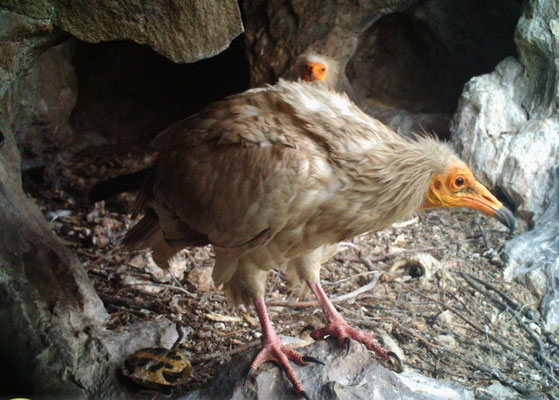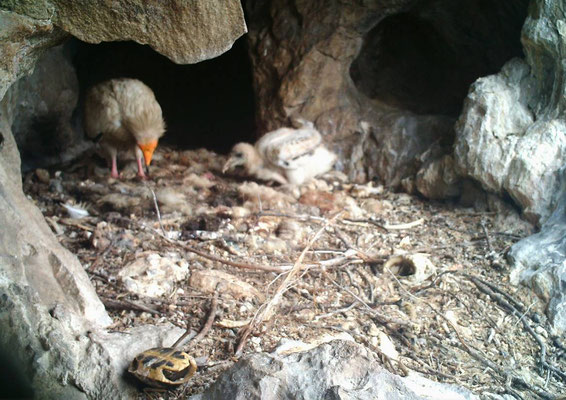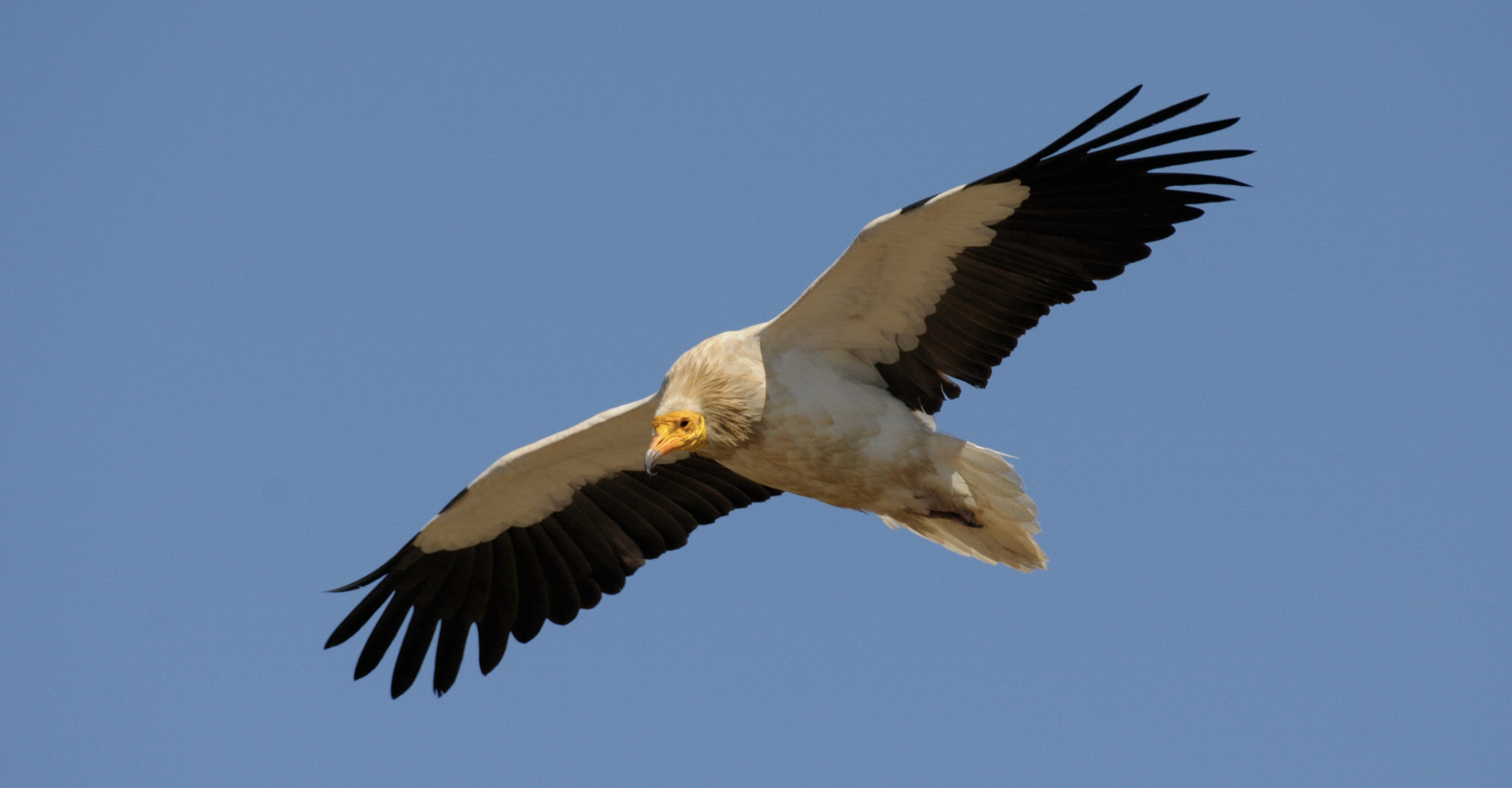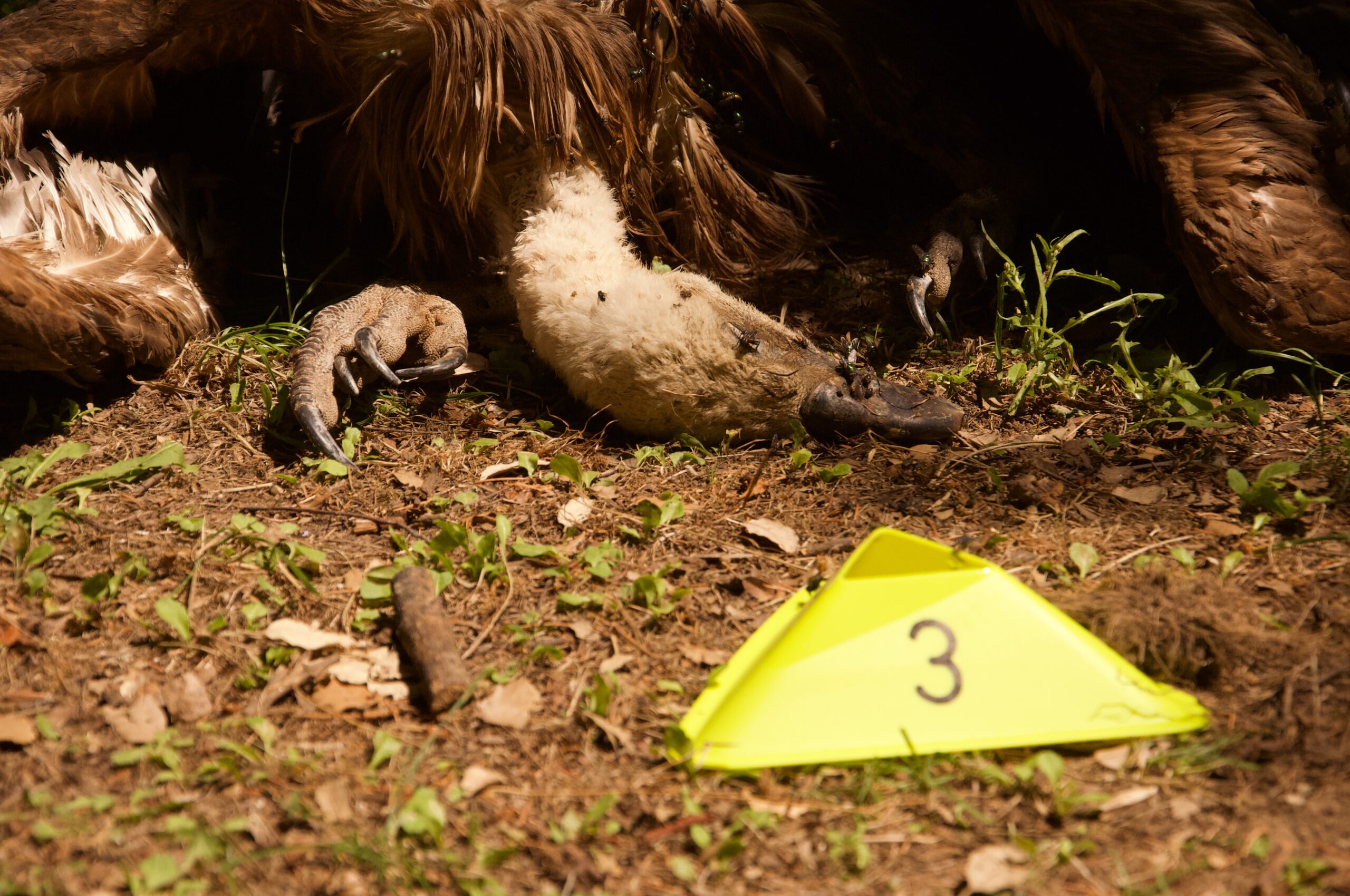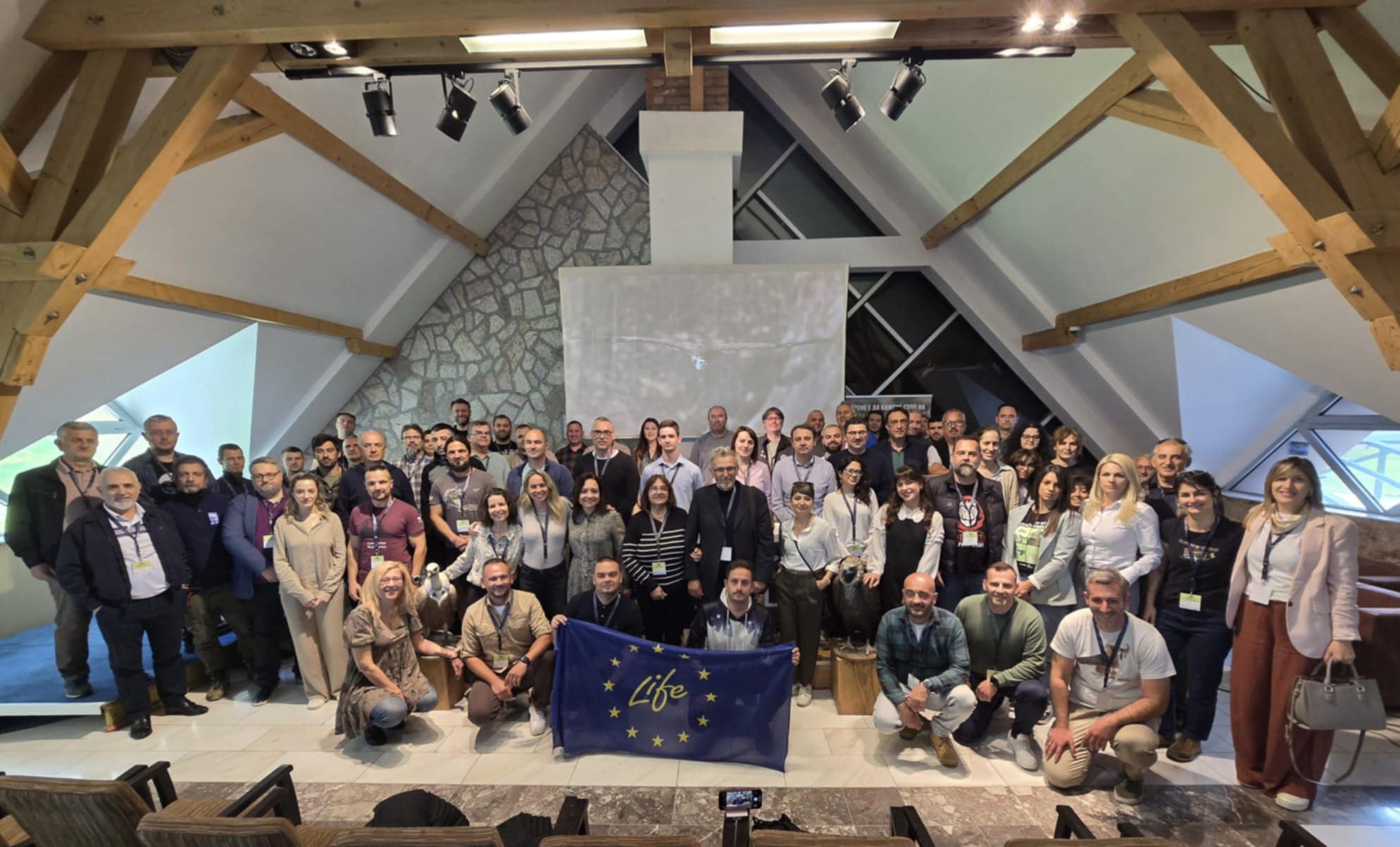
One of the most productive Egyptian Vulture pairs in Bulgaria and their newly hatched chick were discovered dead. It seems that what caused this tragedy is poisoning, but the case is still being investigated.
The Egyptian Vulture is one of the most endangered bird species worldwide, which continues to decline rapidly. Bulgaria holds most of the Balkan population of the species with only 26 pairs, 19 of which breed in the Eastern Rhodopes. Unfortunately, due to this incident, there is one less breeding pair in the region.
Investigating the case
On the evening of 22 June, the Bulgarian Society for the Protection of Birds (BSPB) got a signal from a resident that found a dead Egyptian Vulture near the town of Madzharovo. The BSPB went to the scene early the next morning with the anti-poison dog unit. The Harmanli Police Department also arrived at the scene to investigate the case.

The team quickly discovered the identity of the bird — it was the female of one of the oldest and most productive pairs of Egyptian Vultures in the Eastern Rhodopes. The BSPB team has been studying the behaviour and life of vultures for years with tracking devices and nest cameras, which enables identification of each vulture.
After immediate inspection of the nest, the pair’s chick was also found dead. The analysis of the photos from the nest camera indicated that the parents brought food to the chick, and it died two hours after eating the food. The baby’s mother and father also disappeared from the nest on the 19 June and never returned. The data, as well as the facts established around the carcass of the dead adult vulture, suggest that the death of the family was probably caused by poisoning. Egyptian Vultures are highly territorial birds that inhabit a small area, and this suggests that the incident occurred within the surrounding four villages.
The BSPB team carried out a thorough inspection of the area, during which no carcasses of other wild and domestic animals were found. The case is being investigated, and the bird’s carcass has been sent for laboratory analysis to confirm the cause of its death.
Locals from neighbouring villages also expressed their sadness at the loss of this iconic pair, who have accompanied them in their daily lives for more than a decade, and expressed their willingness to assist in the investigation of the case.
We hope that the responsible institutions will do everything possible to to identify the cause of death, investigate the case and bring through responsible to justice.
Source: Egyptian Vulture New LIFE
How the VCF tackles vultures’ biggest threat
The Vulture Multi-species Action Plan (Vulture MsAP), co-developed by us here at the Vulture Conservation Foundation (VCF), and endorsed by the Convention for Migratory Species (CMS), concludes that poison is the biggest threat to vultures worldwide and a significant part of this global action plan for vultures focuses on the actions needed to fight this threat. Furthermore, the Vulture MsAP is a global strategic blueprint identifying priorities and actions to conserve 15 species of old world vultures, approved in the conference of the parties of the Convention for Migratory Species, which states that poison with poisoned baits (often against predators of livestock) is the main threat to vultures worldwide.
We are actively pursuing different lines of work to fight this threat, among which is the Balkan Anti-Poisoning Project, funded by the MAVA Foundation. The project is working and funding local partners in six counties (Albania, Croatia, Bosnia-Herzegovina, Greece, North Macedonia and Serbia) to try to eradicate this illegal and highly damaging practice.
Egyptian Vulture New LIFE

Working collaboratively projects like the Egyptian Vulture New LIFE aims to reinforce the Egyptian vulture population in their Europe’s easternmost range across the Balkans. By actively managing and restocking the population by releasing captive-bred birds the project will support the small Balkan population which number between 60 and 80 pairs across the whole region. The project is working to deliver conservation measures that eliminate major known threats such as illegal poisoning and electrocution in their summer breeding grounds. Monitoring the population closely using GPS transmitters will also help the project tackle the major threats Egyptian vultures face. The Egyptian Vulture New LIFE is a partnership of organisations, led by the Bulgarian Society for the Protection of Birds from 14 countries spanning Europe, the Middle East and Africa, to protect Egyptian vultures not only in Europe but all along their migratory flyway.

